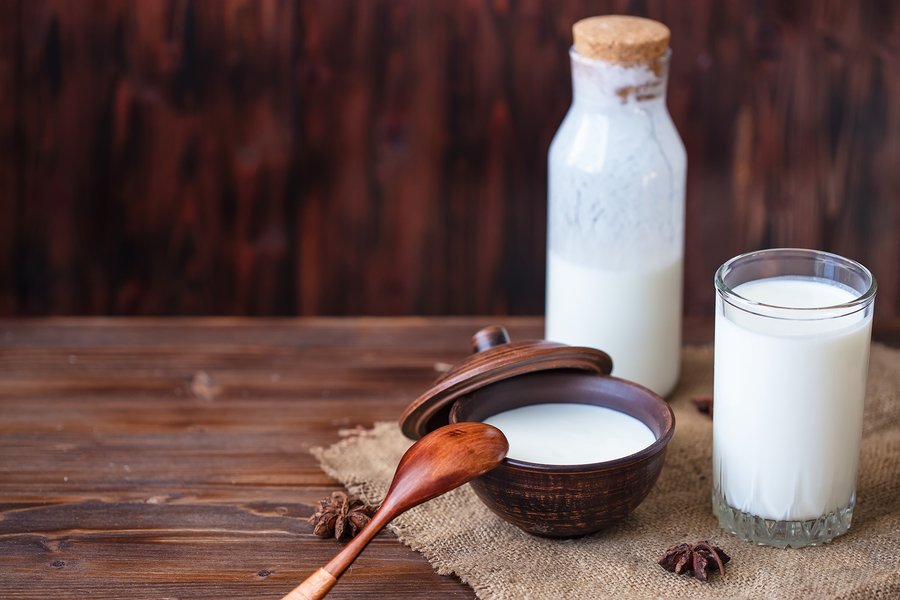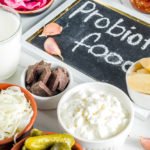Article Summary:
- Eating yogurt is associated with a lower risk of colon cancer in men.
- Yogurt’s intestinal benefits, not surprisingly, stem from its probiotic properties.
- Those who don’t eat yogurt will likely receive the same benefits from other sources of probiotics.
Research on Yogurt To Prevent Colon Cancer
Colon cancer is often detected by diagnostic tests such as colonoscopies. The problem is: these kinds of tests are not typically recommended until a person is 45 to 50 years old. Often, when colon cancer develops in younger individuals, or in those who are older but opt not to undergo a colonoscopy, it is not caught until it has progressed to a later stage and may be deadly by that point. But new research suggests that men might get some protection from colon cancer with regular consumption of yogurt.
The study, which took place at the Washington University School of Medicine in St. Louis, Missouri, found that men who eat yogurt twice a week or more may have a lower risk of developing colon cancer.1Zheng, Xiaobin; et al. “Yogurt consumption and risk of conventional and serrated precursors of colorectal cancer.” Gut. 17 June 2019. Accessed 10 July 2019. http://gut.bmj.com/content/early/2019/05/22/gutjnl-2019-318374. These results are based on an investigation that included 32,606 men and 55,743 women employed in the healthcare field who had undergone a colonoscopy between 1986 and 2012. All the subjects answered questionnaires about their diet, exercise routine, lifestyle, and more every four years.
Men who reported consuming two servings of yogurt or more per week were 19 percent less likely to develop conventional adenomas, which are the type of polyps that most frequently show up during colonoscopies, and 26 percent less likely to develop the kind of adenomas that most often become malignant in comparison to their peers who ate no yogurt. Interestingly, however, no such link between yogurt consumption and colon cancer risk was seen in the female participants.
What’s in Yogurt that Might Provide Colon Cancer Protection?
While the research was not designed to prove cause and effect—and it did not follow up to determine what percentage of the participants with polyps eventually developed colon cancer—it did provide strong evidence of an association between yogurt consumption and a lower risk of colon cancer, at least in men. This is in line with other investigations, such as a 2011 study at the Fondazione IRCCS Istituto Nazionale dei Tumori in Milan, Italy, which found that eating yogurt reduces the risk of colorectal cancer.2Pala, V.; et al. “Yogurt consumption and risk of colorectal cancer in the Italian European prospective investigation into cancer and nutrition cohort.” International Journal of Cancer. 1 December 2011. Accessed 11 July 2019. http://onlinelibrary.wiley.com/doi/full/10.1002/ijc.26193. Although this study found that both men and women received colon cancer protective benefits from eating yogurt, it did find that the effect was indeed stronger in men.
Although, calcium could be part of the answer, since it has also been linked to lower rates of cancer, the current research controlled for calcium intake and determined that other factors are at play. In fact, the main benefit to the colon from yogurt is likely its probiotic ability to encourage the growth of healthy gut bacteria. We know that probiotics help the digestive tract in a number of positive ways, including:
- Reducing inflammation, which can set the stage for the development of cancer
- Eliminating toxins that damage the cells of the colon
- Promoting more efficient bowel movements to ensure that fecal matter isn’t collecting in the colon
Yogurt Alternatives for Probiotic Health
If you are an ovo-vegetarian who eats no dairy, suffer from lactose intolerance, or just simply don’t care for yogurt, don’t fret. There are plenty of other options for getting an adequate amount of probiotics into your diet. Kefir is a fermented milk product rich in beneficial bacteria that may work for those who don’t like yogurt, sauerkraut is non-dairy and highly fermented with probiotic bacteria and offers fiber and antioxidants as well, and tempeh is made from fermented soy beans, high in probiotics and protein.
Another ideal option for increasing your probiotic intake is to take a natural daily supplement. Choose a supplement that includes recognized super strains of beneficial bacteria. To learn more about what to look for in a probiotic formula, check out Jon Barron’s informative article, “The Probiotic Miracle.”
References
| ↑1 | Zheng, Xiaobin; et al. “Yogurt consumption and risk of conventional and serrated precursors of colorectal cancer.” Gut. 17 June 2019. Accessed 10 July 2019. http://gut.bmj.com/content/early/2019/05/22/gutjnl-2019-318374. |
|---|---|
| ↑2 | Pala, V.; et al. “Yogurt consumption and risk of colorectal cancer in the Italian European prospective investigation into cancer and nutrition cohort.” International Journal of Cancer. 1 December 2011. Accessed 11 July 2019. http://onlinelibrary.wiley.com/doi/full/10.1002/ijc.26193. |











